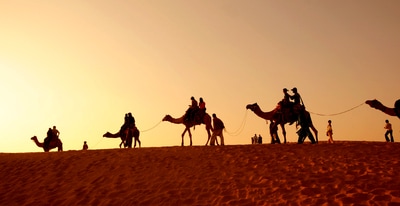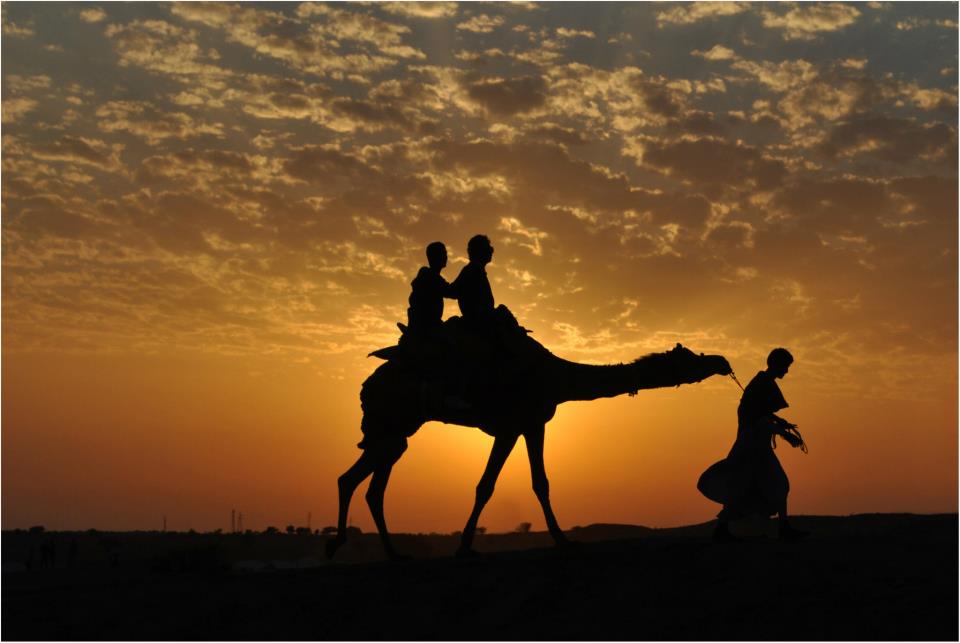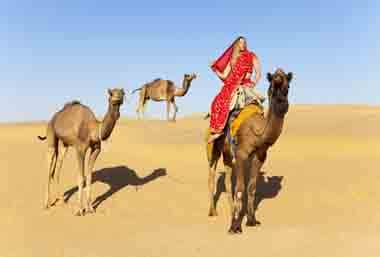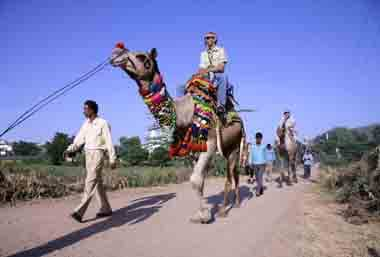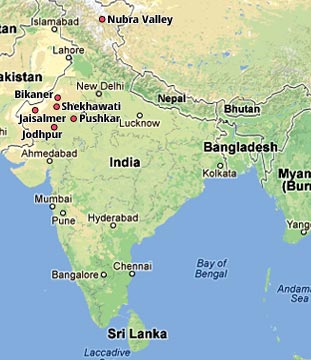What is Camel Safari
What better way to explore the desert than on the back of an animal that has for aeons been associated with these immense tracts of sand?
A camel safari is the perfect way to discover desert regions – especially areas as historically and culturally rich as Rajasthan, or as vast and awe-inspiring as the Nubra Valley in Ladakh. Ensconce yourself contentedly on the back of an ungulate and admire the sand dunes around you extending for miles – as far as your eye can see. A camel can take you places where a jeep or ordinary motor vehicle will struggle to reach (and only the camel can successfully navigate the dunes). Not for nothing is the camel known as the ‘ship of the desert’; for centuries, it was the only means of transport available in these often inhospitable stretches of land. A camel safari, then, makes for a magical journey, one unlike any other you’ll ever experience.
Camel Safari in India
There’s probably no better (or more romantic) way of seeing Rajasthan than on the back of a dromedary. Crisscross the sands during the day – get up close with Rajasthan’s splendid architecture and wonderful hospitality – and sleep under the stars at night. Boasting the awesome vastness of the Thar Desert, Rajasthan is quite obviously the top destination for camel safaris in India. You can tread the caravan routes of old, passing hamlets and desert communities almost unchanged over time. Most of the safaris take place around Bikaner, Jaisalmer and Jodhpur. The classic camel safari (among the many worth experiencing) is the Bikaner-Jaisalmer one, which covers (approximately) 25km-30km every day over 11 days. Safaris are of varying duration – you can choose from half- and full-day journeys to month-long tests of endurance.
Up towards India’s northern extremity is the stunning Nubra Valley, where safaris are conducted on the rare double-humped Bactrian camel. A ride on the back of one of these magnificent creatures allows you to delight in the valley’s quaint villages and Buddhist traditions, making for a truly memorable experience.
Know more about Desert and Camel Safari in India.
Best season in India
In Rajasthan, the winter months (October to March) are ideal, while summer is the best time for a camel safari in Nubra Valley.
Camel Safari sites in India
Rajasthan – Around Bikaner, Jaisalmer, Jodhpur (also Nagaur, Pushkar, Shekhawati)
Ladakh – Nubra Valley (from Hundar to Diskit)
Tips
Prior to booking a camel safari, choose your operator with care – make sure it actually is providing the facilities it claims to be doing so.
Bring a padded cushion to sit on – a journey on a camel’s back can get rather uncomfortable! Also bring along sunscreen, sunglasses, moisturizer, lip salve, flashlight, toilet paper and a towel, along with plenty of water and warm clothing.
Before you embark on a camel safari, here are a few important things to keep in mind:
1. When mounting a camel, lean back
2. When the camel stands up, or sits down, lean back and grip the reins firmly
3. Always grip the reins when the camel is moving – you will be rocked back and forth,though gently!
4. When turning right, pull the right rein towards your right; when turning left, pull the left rein to your left
5. When the camel gallops, pull both reins together slowly, and give the camel a slight kick on both sides
6. To get the camel to stop, pull both reins backwards quickly
7. To get the camel to sit down, pull both reins
8. To get the camel to start walking, pull the reins up
9. Avoid provoking a camel – and don’t give it any food!
Medical concerns
A camel safari can be a test of stamina – especially if you’re planning a ride of a week or more. Even the short-duration safaris demand a decent level of physical fitness. If you’re afflicted by a medical condition, bring the necessary prescribed medication – but it is advised that you get an all-clear from your doctor before going on a camel safari. Also, carry anti-malaria tablets and a first-aid kit. Above all, since you’re out in the desert, drink plenty of water to keep yourself rehydrated.
Ecological concerns
The desert is as ecologically fragile as other ecosystems. So do leave it as clean as you found it – and don’t litter.







 Share Via
Share Via
